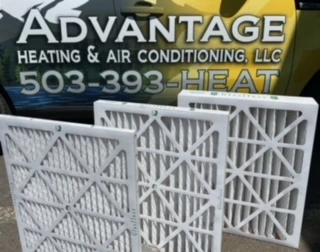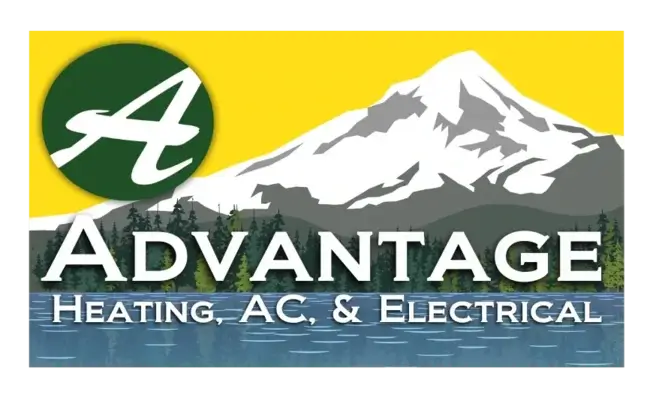Who Makes The Best Allergy Friendly Furnace Filter?
Why do you need the best allergy-friendly furnace filter? If your family suffers from allergies or asthma, you need to think about the air quality inside your home. Dust mites, mold spores, pollen, and pet dander can easily get stuck in vents and spread around your home as air gets circulated. Don’t freak out though. In this post, you will learn about tools and resources that help reduce allergens in your home.
In this article, we’ll give some brand recommendations to help you get the best filters for allergies, and also some tips and tricks to give you an allergy-friendly home. These tools and best practices can reduce irritants and increase your quality of life, making your home a comfy oasis instead of a sneezing battleground.
Can I Just Buy Something That Fixes The Problem?
Yes! Your HVAC system has a built-in filter. You just need to make sure you’re buying the right one!
When shopping for the best allergy-friendly furnace filter or getting one installed, the key thing to look for is the MERV rating. MERV stands for Minimum Efficiency Reporting Values. A filter’s MERV is on a scale of 1 to 16. A rating of 1 would not filter most particles, while a rating of 16 could efficiently remove even the smallest of pollutant particles.
The kings of HVAC filters are High-Efficiency Particulate Air filters – HEPA for short. HEPA filters are not typically MERV rated, but if they were on the same scale, you could consider them to be MERV 17 to 20, beyond the actual bounds of the scale.

So Why Doesn’t Every Home Furnace Use A HEPA Filter?
There’s a pretty important reason. Not every system can handle a HEPA filter or at least something on the high end of the MERV scale. It’s because of the amount of resistance caused by the filter. The higher a filter is on the MERV scale, the more air pressure is required to avoid restricted airflow.
That means that the best allergy-friendly furnace filter may not be the best fit for your HVAC system. Many residential furnaces will use a filter between MERV 8 to 11. However, if your family struggles with allergies or asthma, a filter between 12 to 13 could help a lot.
Can You Make Your Furnace HEPA Compatible?
Absolutely! It’s a simple task for any HVAC contractor.
Depending on how bad your allergy symptoms may be, you can talk to your local HVAC company and ask them about adding a bypass to your furnace.
A good HVAC contractor can make most furnaces work with a HEPA filter by adding a bypass that cycles air back to the return. That way you’re still breathing clean, filtered air, but the furnace doesn’t have to contend with the increased resistance.
Maintaining A High-Efficiency Filter
Now, keep in mind that furnace filters need to be changed regularly to maintain airflow and prevent additional strain on the furnace. A higher efficiency filter may need to be changed more frequently as it is trapping more pollutants.
Depending on the filter and system, it may need to be changed every 2 to 3 months for a 1-inch filter. Other larger box filters can have a much longer lifespan. Consult your Advantage service technician or check the recommendation of the filter’s manufacturer.
What Brands Make The Best Allergy-Friendly Furnace Filters?
Okay, so now that you know what to look for in filter ratings, let’s talk about some filter manufacturers that make some excellent filters. Each title here will be a link.
First up:

Filtrete produces an array of readily available filters that are between MERV 8 and 12, and some special ones up to MERV 15, but they may not be as easy to find depending on where you live. They also offer a smart filter that you can connect to a mobile device via Bluetooth so that you can check usage details from sensors in your HVAC system. Filtrete is well-reviewed by consumer reports and its products have high scores from customer reviews at several online merchants. They recommend replacing their 1 or 2-inch filters every 90 days, and changing out their larger box filters every 6 months.
Glasfloss produces a range of high-quality filters that are MERV 10 and above. They also make HEPA filters for both residential and commercial use. Glasfloss also manufactures all its filters in the United States. They optimize their filters to allow better airflow while maintaining a high MERV rating. During the performance testing of their Z-line MERV 10, it could provide the same level of airflow as a MERV 8 while maintaining the 10s standard of filtration – that’s mind-blowing! They also recommend replacing their filters every 3 months.
Honeywell creates HEPA and high MERV rating filters that are easily available for consumer purchase without having to go to a specialty store. Honeywell also has a wide range of air purifiers that can you can use along with a good furnace filter to eliminate additional allergens. They recommend replacing their 1-inch filters every 90 days and replacing their larger box filters every year.
Do I Need More Than An Allergy-Friendly Furnace Filter?
The answer to this depends on your unique situation. If you share a living space with multiple people, have pets, or have a compromised immune system that is at risk for airborne pathogens, you might need a little extra help to clean up your air. There are additional devices that you could use to improve the quality of your air at home. Each title here is a link as well.
iWave produces air ionization systems that get added to your existing HVAC systems. These systems create ions (non-harmful particles) that bond with pollutants and allergies and make them denser. By making the bad particles bigger, it becomes easier for your air filter to intercept them and remove them from the air.
Aerus produces a device called the Air Scrubber. Your HVAC technician will attach this device directly to your ductwork. The Air Scrubber will work while your HVAC system is running. This device removes airborne viruses and bacteria from your home. The Air Scrubber has the added benefit of being effective against allergens and other contaminants, so it could reduce allergy exposure and build-up of debris in your ductwork.
The Reme-Halo is another air purifier that works inside your ductwork. This device uses a combination of UV light and low levels of hydrogen peroxide to kill viruses, bacteria, and mold in the air that circulates in your home. A benefit of a device like the Reme-Halo is that it will kill viruses and bacteria that could even pass through a HEPA filter. That means this device is something to consider if you are immunocompromised.
What Else Can You Do To Make Your Home Allergy-Friendly?
The best allergy-friendly furnace filter can be an enormous help in combating allergens in your home, but you can do even more if you stick to some best practices.
Allergens and air pollutants don’t just live in the air. They can settle in the carpeting, bedding, on shelves, and even in the crooks and crannies of your ventilation system. These irritants can get disturbed and knocked into the air, risking a potential allergic reaction or an asthma attack.
To complement the filter’s ability to reduce pollutants in the air, you may need to have an increased awareness of home cleanliness.
Here are some simple to-dos that can keep your home free from nasty particles.
Air Quality Tips For Allergies
- Vacuum and dust regularly
- Change and wash your bedding more often
- Use a standing air purifier with a HEPA filter
- Have your vents and furnace cleaned every 2-5 years
- Don’t keep doors or windows open on days with poor air quality
- Change your air filter
The Takeaway on Allergy-Friendly Furnace Filters
Okay, so now you’ve got what it takes to transform your home into the haven of your dreams – free from allergens, pollutants, and other pesky particles. Just remember, MERV filters with a rating of 10 or higher will reduce a significant amount of allergens over lower MERV-rated filters.
If your furnace can handle it, install a HEPA filter since it will provide the most reduction of pollutants and allergens and provide the most relief from allergy and asthma symptoms caused by home air quality. Also, clean more often to ensure settled particles don’t become a problem for you.







